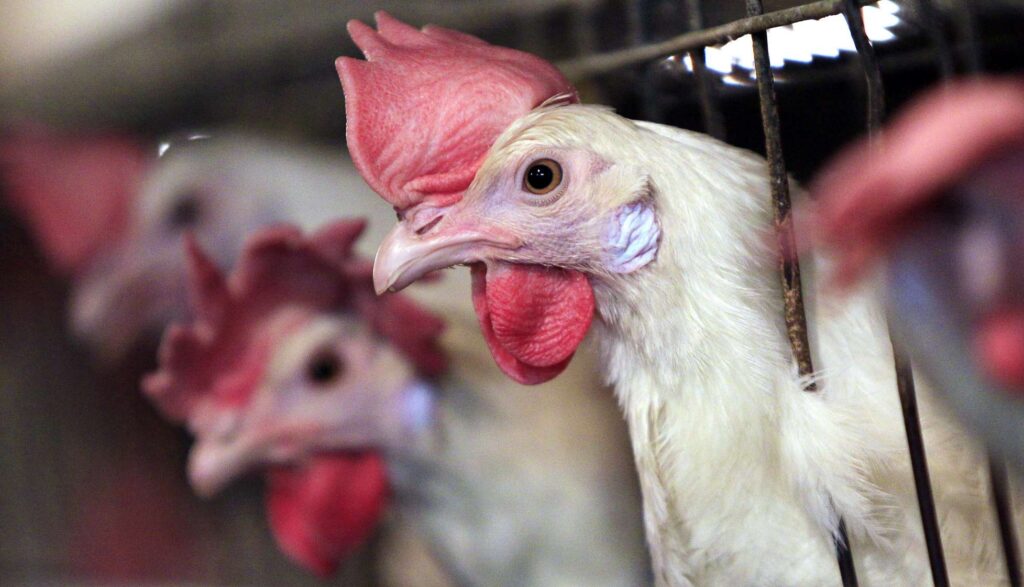South Africa endured one of the longest lockdowns in the continent. But leading South African poultry producer Astral Foods’ feathers were not too badly ruffled by it, as indicated in its full-year results.
Although Astral’s operations continued during the country’s hard COVID-19 lockdown period, trading conditions reflected a difference between the two halves of the financial year, according to the company.
Despite trading under a hard lockdown, under which some businesses capitulated under tremendous financial strain, Astral experienced limited bad debts, says CEO Chris Schutte.
Astral Foods, which is listed on the Johannesburg Stock Exchange, is a leading poultry producer in the country and has three divisions: poultry, feed and other Africa. In addition to South Africa, the company has a presence in Eswatini, Mozambique and Zambia.
Astral Foods’ activities include manufacturing animal feeds, broiler genetics, and production and sale of day-old chicks and hatching eggs. It has integrated breeder and broiler production operations, abattoirs, and the sale and distribution of various poultry brands.
The direct cost of COVID-19 to the poultry division was R39m ($2.5m) and R2m to the feed division. Furthermore, South Africa’s power supply problems – and, increasingly, disruptions to water supply – affected the company’s local operations.
In the year under review:Africa InsightWake up to the essential with the Editor’s picks. Sign upAlso receive offers from The Africa ReportAlso receive offers from The Africa Report’s partners
- Revenue increased 4.6% to R14.1bn, with the poultry division contributing 79% – while the feed and the other Africa divisions’ share was 17% and 4% respectively.
- The group has declared a final dividend of R7.75/share.
Too much chicken to go around
In terms of the second half of the financial year, the hard lockdown had a significant impact on the local poultry market.
This is because the hard lockdown meant a complete shutdown of hospitality services, restaurants and quick service restaurants (QSR), which account for 20% of domestic poultry consumption. Added to this were slower fresh sales.
Collectively, these dynamics led to an oversupply of chicken in the frozen categories.
Complete the form and download, for free, The Africa Report’s COVID-19 How Africa can navigate the pandemic. Get your free PDF by completing the following formEmail Address *
Domestic poultry producers, including Astral Foods, have expressed concerns about substantial imports from markets such as Brazil and the US, whose bone-in chicken is cheaper and takes up a sizeable portion of the local market.
South Africa has introduced a higher import tariff, but the Astral Foods CEO notes: “It is still unclear if the higher import tariffs on frozen bone-in portions announced in March 2020, will discourage unfair trade – [also known as] dumping.”
Although an eleventh-hour compromise was reached and South Africa’s inclusion in Agoa sealed, imports remain a talking point for domestic poultry producers.
- In 2019, South Africa imported more than 500,000 tons of chicken from Brazil (49.8%), the European Union (EU) (23.1%), the US (16.6%), Argentina (7.0%) and other markets (3.5%).
- In the year to 30 September 2020, the country has imported more than 360,000 tons of chicken. Brazil (54.2%) leads, followed by the EU (18.6%), the US (17.5%), Argentina (6.5%) and other markets (3.2%).
In the broiler producer category, Astral Foods has a 26% market share in South Africa, excluding imports. When imports are factored, Astral Foods’ market share is 18%. Furthermore, imports take up 29% of the South African market.
To deal with the oversupply conundrum, South African retailers introduced deep-cut promotions. This helped lift frozen chicken sales volumes. Astral Foods benefited. This also brought down stock to “more acceptable levels by year-end.”
The reopening of the local hospitality and restaurant sectors helped QSR volumes. Astral gained substantially from this.
In the other Africa division, profitability improved as a recovery in regional poultry markets was “experienced following a devastating drought and crop failures in 2019.” Africa InsightWake up to the essential with the Editor’s picks. Sign upAlso receive offers from The Africa ReportAlso receive offers from The Africa Report’s partners


